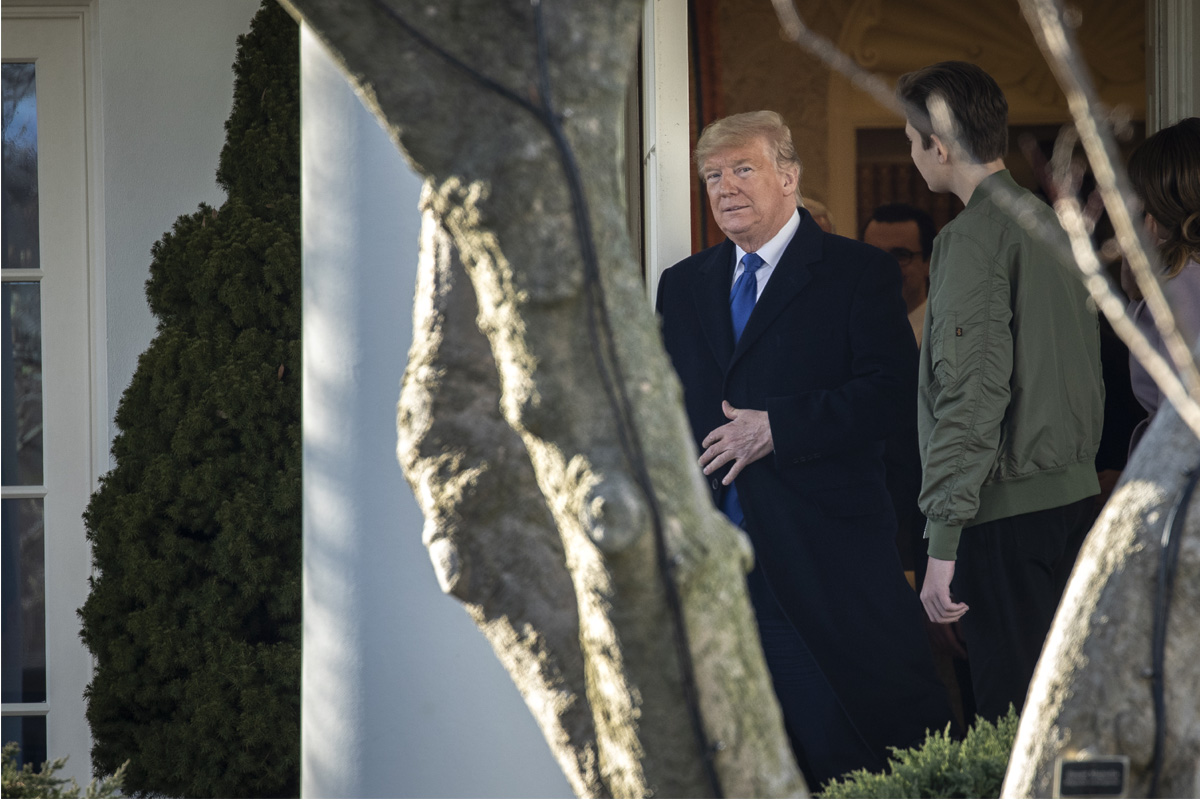Trump issues ‘last warning’ to Hamas as US confirms direct hostage talks
US President Donald Trump has issued what he called a "last warning" to Hamas to release the hostages being held in Gaza.
The first alleges that he “abused the powers of the presidency” by trying to get Ukraine to intervene in the 2020 election.

WASHINGTON, DC - JANUARY 17: US President Donald Trump exits the Oval Office at the White House on January 17, 2020 in Washington, DC. The Trump family is headed to Mar-a-Lago for the weekend. Drew Angerer/Getty Images/AFP
It is a defining moment for the rule of law in the United States of America. The impeachment charges against Donald Trump are sufficiently serious and appropriate, and as the proceedings were set in motion in the Senate on Thursday, it was pretty obvious that the exercise will test the power of a fractured Congress to rein in the President.
Mr Trump has been held guilty by the House of Representatives where the Democrats are in majority. The composition of the Senate, predominantly Republican, offers hope to the occasionally reckless President. In terms of the US Constitution, this is a profoundly critical development, and still more so in an election year.
Advertisement
Historically, Mr Trump is only the third President in more than 230 years to face trial in the Senate after being impeached by the House. The trial could even result in Mr Trump becoming the first President to be dismissed from office, although such an event seems unlikely. In that event, his bid to seek re-election this November gets reduced to irrelevance.
Advertisement
Andrew Johnson in 1868 and Bill Clinton in 1999 escaped that denouement. Mr Trump proceeds from conclusion to premise when he debunks the trial as “trivial”, even a “partisan witch-hunt” before it has begun in right earnest. The President cannot be unaware that the two charges ~ the articles of impeachment ~ against him are serious, and reflect poorly on his conduct of foreign policy.
The first alleges that he “abused the powers of the presidency” by trying to get Ukraine to intervene in the 2020 election. He did this by corruptly soliciting investigations by Ukraine that would assist his re-election; by corruptly withholding aid to Ukraine unless it cooperated; and by persisting with exerting pressure on Ukraine for his own benefit.
The article concludes that this makes Mr Trump a “threat to US national security if he remains in office”. In the second article, the President has been charged with obstruction of Congress as it attempted to carry out its lawful power of impeachment. This obstruction involved defiance of subpoenas, and presidential orders to government officials not to comply with either.
Such defiance of an impeachment process is, in principle, impeachable. There is ittle doubt that President Trump is on a sticky wicket. This trial is therefore not just a pivotal moment for Mr Trump and for the presidency. It is no less a defining moment for the Senate itself.
If the Senate votes on party lines to acquit Mr Trump who is subsequently re-elected, this would be a blot on American history. If the net result is a lawless presidential legitimacy, the checks and balances of the US Constitution will need to be redefined. The 45th US President is as unchecked as he is occasionally imbalanced.
Advertisement